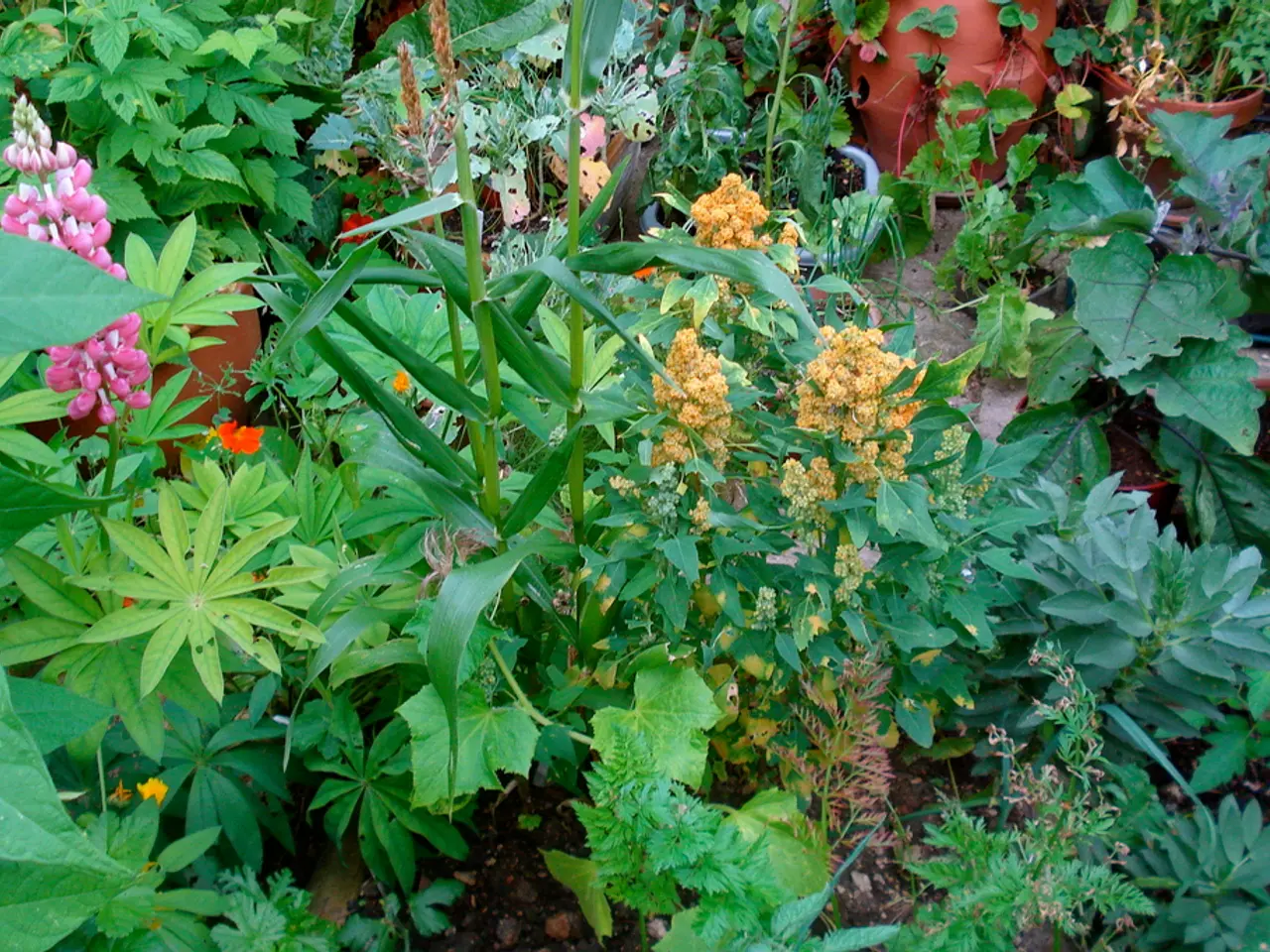Horticultural oil: A substance that promotes the growth of stronger, healthier plants
Horticultural oil, a common garden solution, is widely used as a natural pesticide and sometimes as a fungicide. Its primary uses include controlling soft-bodied insects like aphids, whiteflies, beetles, fruit flies, and leafminers, as well as managing fungal diseases such as powdery mildew and rust.
Benefits of Horticultural Oil
The benefits of horticultural oil are numerous. It offers effective pest control by smothering soft-bodied insects, disrupting feeding, growth, and reproduction. Additionally, some formulations have antifungal effects, helping to control diseases like powdery mildew.
One of the key advantages of horticultural oil is its selective action. It primarily affects pests that actively feed on treated plants, making it relatively safe for beneficial insects such as ladybugs, lacewings, and pollinators that do not feed on plant foliage.
Another advantage is its eco-friendliness. It breaks down quickly in the environment, posing minimal ecological risks, and is thus favored in organic gardening. Furthermore, horticultural oil can be used as an organic insecticide, fungicide, and even as a soil amendment when derived from neem seed byproducts.
Drawbacks of Horticultural Oil
While horticultural oil offers numerous benefits, its use comes with certain drawbacks. Misapplication can potentially harm beneficial insects, causing leaf burn or killing helpful insects, disrupting garden ecology.
Another concern is that oils can persist and potentially leach into soil, which may impact soil organisms or accumulate if overused. Proper timing and application are crucial; horticultural oil needs to be applied in early morning or late evening, and repeated every few days during pest outbreaks for consistent effectiveness.
Potential phytotoxicity is another drawback. Without proper dilution or inappropriate conditions, oils can damage sensitive plant tissues. It is less effective against hard-bodied insects and some pests that avoid treated parts.
Using Horticultural Oil Safely
To ensure safe and effective use of horticultural oil, it is essential to follow the instructions on the product label and mix it with water. It is important to note that applying horticultural oil to plants already in flower can destroy pollinators, and all horticultural oils are at least slightly toxic to fish.
In summary, horticultural oil is a valuable, relatively safe, and natural pest and disease control method in gardens. Its proper use requires attention to application timing, dosage, and target pests to avoid damage to plants and beneficial insects.
Read also:
- Avoidable foods during shingles: Hot, spicy dishes, sugary items, and so on
- Connection between Broccoli Consumption and Gout Management: Key Insights
- Home Studio Allergy Management: A Comprehensive Guide for Designers
- Gambling enthusiasts can explore a variety of Playtech slots offered by Hollywoodbets.




